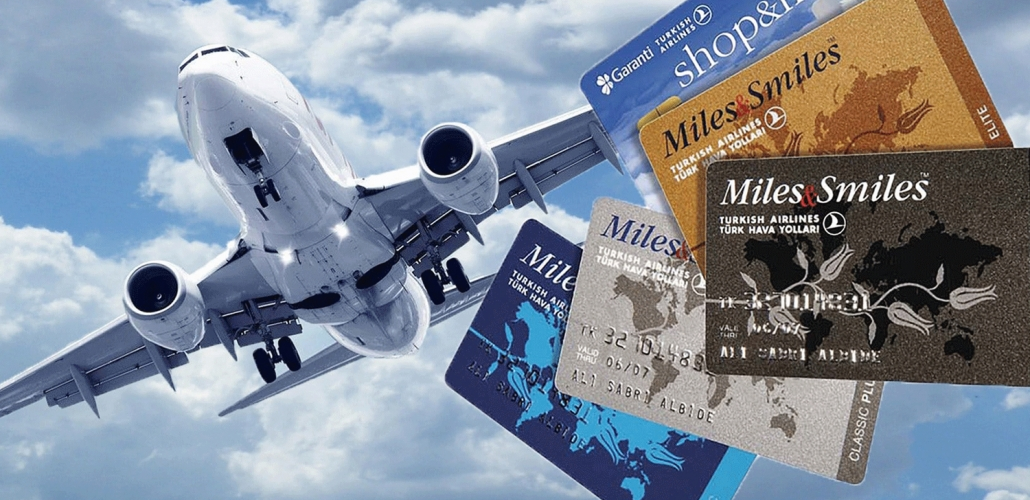Why Do Airlines Offer Loyalty Programs? Benefits for Flyers and Carriers
Airlines have created loyalty programs to reward their customers. These programs encourage travelers to fly with them repeatedly. Loyalty programs help airlines build a strong relationship with their customers. They offer various benefits, such as earning points for free flights and upgrades. This article provides detailed information on why airlines offer loyalty programs and the benefits for both flyers and carriers.
What Are Airline Loyalty Programs?
Airline loyalty programs are designed to reward frequent travelers. These programs allow passengers to earn points or miles for flying. Travelers earn points based on the distance flown or the money spent on tickets. Points can be redeemed for free flights, upgrades, or other rewards.
Partnerships: Many airlines partner with hotels, car rental companies, and restaurants to allow customers to earn points even when they are not flying. These programs create a system where travelers feel rewarded for their loyalty.
The Evolution of Airline Loyalty Programs
From the beginning of airline loyalty programs in the early 1980s, they have advanced significantly. The initial initiative, AAdvantage from American Airlines, paved the path for a novel approach to consumer interaction. Nowadays, almost all of the big airlines have loyalty programs because they understand how important they are for building relationships with their customers. Based on their travel behaviors, members of these programs can usually accrue miles or points that can be exchanged for free flights, hotel upgrades, and special services.
Types of Loyalty Programs
There are different types of airline loyalty programs. Understanding the types helps travelers choose the best program for their needs.
Mileage-Based Programs: Points are earned based on miles flown.
- Miles are earned by members in accordance with the distance flown or the fare class they have paid. Extra miles can be accrued through partnerships with hotels and restaurants or regular transactions made with co-branded credit cards.
Revenue-Based Programs: Points are earned based on the amount spent on tickets.
- In addition to providing rewards to consumers, frequent flyer programs are a major source of income for airlines. Airlines can increase their overall revenue by offering incentives to passengers who book more flights and spend more on ancillary services (such as baggage fees and in-flight purchases). Additionally, airlines can generate income by partnering with credit card companies to offer co-branded cards that give miles or points for regular expenditures.
Tiered Programs: Members can achieve different levels of status, each offering more benefits.
- Tiered structures that provide greater advantages when members reach higher status levels are a common component of airline rewards programs. For instance, after completing a specific amount of miles or segments in a given year, frequent travelers may be eligible to become elite members. Improved benefits like free upgrades and specialized customer support lines are frequently included at higher tiers, encouraging passengers to stay loyal.
Benefits for Flyers
Airline loyalty programs provide many advantages for passengers. These benefits enhance the travel experience and encourage repeat business.
- Free Flights and Upgrades: Frequent flyers can accumulate points that can be redeemed for free flights. Members often have the option to upgrade to a higher class of service using their points. These rewards make flying more affordable and enjoyable.
- Priority Services: Loyalty members often enjoy faster check-in processes. Many programs allow members to board before other passengers. These services save time and reduce stress at the airport.
- Exclusive Lounge Access: Many airlines offer lounge access to loyalty members. Lounges often include comfortable seating, free snacks, and Wi-Fi. Accessing lounges makes waiting for flights more pleasant.
- Bonus Offers and Discounts: Members receive special deals that are not available to the general public. Loyalty members may enjoy discounts on future flights or services. These offers add extra value to being part of a loyalty program.
- Personalized Travel Experience: Tailored Offers: Airlines use data from loyalty programs to provide personalized services.
- Understanding Preferences: Knowing customer preferences helps airlines improve their offerings. A personalized experience makes travelers feel valued and understood.
Benefits for Airlines
Airlines also gain significant advantages from offering loyalty programs. These benefits help improve customer retention and overall business performance.
- Building Customer Loyalty: Loyalty programs encourage customers to choose the same airline repeatedly. Travelers are less likely to switch airlines if they have accumulated rewards. This loyalty translates into consistent revenue for airlines and attract customers with rewards for recurring business, especially in a diverse field where customers feel appreciated and rewarded.
- Increased Revenue: Airlines can sell miles to credit card companies and partners. Customers are likely to purchase more tickets when they know they can earn rewards. Loyalty programs create additional revenue streams for airlines.
- Valuable Customer Data: Airlines collect data on customer preferences and travel habits. This information helps airlines tailor their services to meet customer needs better. Using data effectively allows airlines to enhance their offerings continuously.
- Competitive Advantage: A strong loyalty program can differentiate an airline from its competitors. Travelers often choose airlines with attractive loyalty programs over those without them. A well-designed loyalty program helps airlines maintain a competitive edge in the market.
Airline Marketing Strategies
In order to improve customer happiness and retention, airlines use loyalty programs as a component of their larger marketing campaigns. Airlines produce a unified experience that appeals to passengers by incorporating these initiatives into their overarching marketing strategy.
- Personalized Marketing: By using information gathered from loyalty programs, airlines are able to tailor their advertising to the interests and actions of specific customers.
- Cross-Promotions: Airlines are able to provide comprehensive packages that increase customer value through partnerships with lodging facilities, vehicle rental firms, and other travel-related enterprises.
Conclusion
Airline loyalty programs play a vital role in the travel industry. They benefit both flyers and carriers by enhancing the travel experience and promoting customer loyalty. For passengers, these programs offer rewards such as free flights, upgrades, priority services, and personalized experiences. For airlines, these programs generate revenue, build brand loyalty, and provide valuable customer insights. As travel continues to grow, loyalty programs will remain essential tools for airlines looking to engage customers effectively. By understanding the benefits of these programs, travelers can make decisions about which airline to choose for their journeys. Ultimately, loyalty programs create a win-win situation for both passengers and airlines in today’s competitive market.




